Film Name:絕世高手 / The One
[Note: This article contains minor spoilers.]
Given the numerous advance screenings of “The One” before its official release on July 7th, many early reviews and analyses had already surfaced. This allowed me to approach the film with a sufficiently balanced mindset.
Frankly, for a debut feature by a new director, “The One” is quite decent. Hailing it to the heavens would be unrealistic, while dismissing it as worthless would be unfair…
If forced to assign a score, I’d give it above average—perhaps even a bit higher out of personal affection… The film’s greatest strength and weakness both stem from one thing: imitation and homage.
To discuss “The One,” one must first address its director, screenwriter, and lead actor, Lu Zhengyu.
From his web series “Hip Hop Quartet” to the “Hip Hop Trilogy,” and his screenwriting and acting roles in “Journey to the West: Conquering the Demons” and “Mermaid,” beyond his identity as a “talented post-80s creator,” the name Lu Zhengyu cannot be separated from Stephen Chow.
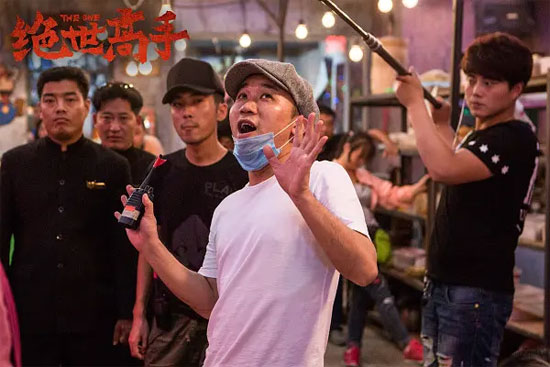
Indeed, generations of us grew up watching Stephen Chow’s films, and he has countless devoted fans. Yet among them, only Lu Zhengyu has taken fandom to such an extreme.
From humble beginnings, a bumpy road to success, and constant public declarations of adoration for his idol—Stephen Chow’s influence on Lo Cheng-yu runs deep in his bones.
Yet as the saying goes, what makes you strong can also be your downfall. While “The One” benefits from the convenience of Stephen Chow’s “nonsensical” comedy, it also struggles under the weight of this invisible shadow…
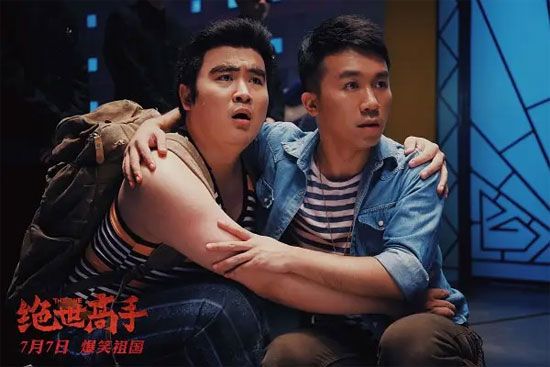
The film’s various elements reveal just how deeply Lu Zhengyu pays homage to Stephen Chow—the protagonist, Xiao Yu, is an orphaned child haunted by regret over his mother’s death. He forms an unbreakable bond with the overweight character played by Kong Lianshun, possessing extraordinary talent yet stuck in a life of petty crime.
Anyone familiar with Stephen Chow’s Kung Fu Hustle and The God of Cookery will undoubtedly spot connections between The One and these classics. The decaying streets of the urban jungle mirror the hidden talents lurking in Old Shanghai’s Pig Cage City—an unassuming old man could be the Shaolin abbot or a legendary culinary master. At the end of the psychiatric ward corridor, the Fire Cloud Demon emerges, while the funeral home houses the culinary master’s equally formidable spouse. And every master chef possesses a few dazzling martial arts tricks up their sleeves…
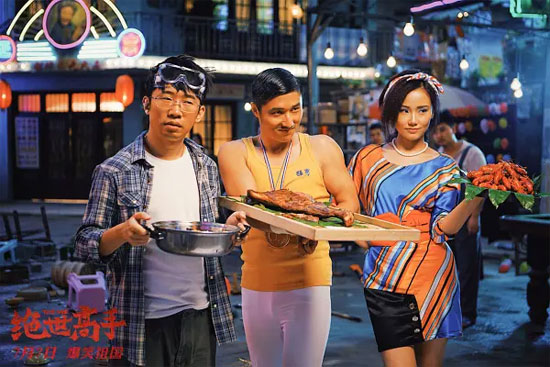
Whether it’s the three-act film structure or the countless hilarious details, “The One” bears the unmistakable stamp of “Zhou-style comedy.” I won’t elaborate further—anyone who has ever enjoyed or still loves absurd humor will find plenty to chuckle about.
Yet beyond that, you’ll also notice that once you strip away the mix of new and old gags, there’s little true innovation in the story itself—not because it couldn’t be done, but because it wasn’t dared. As Lu Zhengyu stated in an interview: “Since this was my first film, I didn’t dare to pioneer new narrative structures. I felt I should focus more time on the details.”
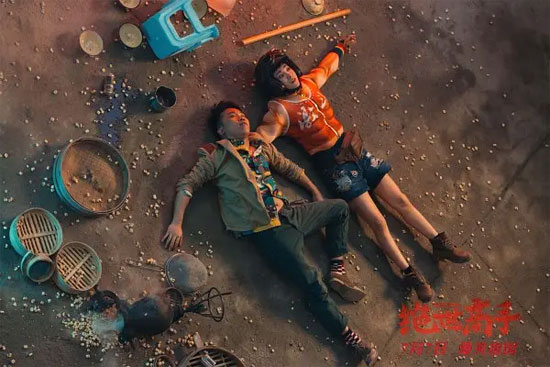
—Since Lu Zhengyu chose to play it safe, we won’t be overly critical of The One’s overall storytelling. Instead, let’s examine the details.
The romantic subplot between Xiao Yu and Xiao Man is where a director’s fundamental skills are most tested. While Lu Zhengyu ultimately couldn’t deliver anything groundbreaking or exceptional, he managed to make it passable with some commendable moments.
Xiao Yu, who lost his mother at a young age due to a tragic incident, became a “natural-born tough guy” after experiencing intense trauma that numbed his physical sensations. Xiao Man, whose mother ascended to heaven alone, developed an unyielding resolve against those who mocked her, eventually becoming an “acquired tough guy.”
Yet beneath their rough exteriors, both oddballs harbor warm hearts.
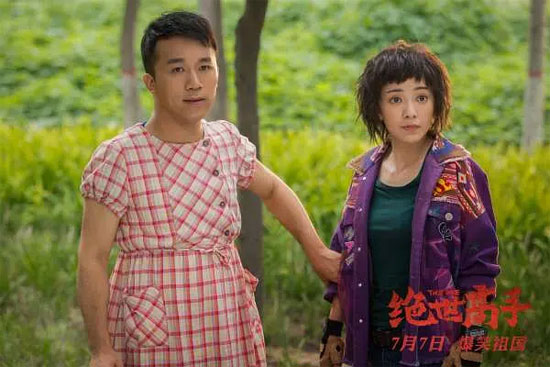
Xiao Yu pursued Xiao Man to complete Boss Cai’s mission, blending genuine feelings within his insincere affectations. Then, driven by ambition for wealth and status, he betrayed all his friends against his conscience. In yet another excruciatingly painful transformation, Xiao Yu became a “peerless master” with extraordinary perception. Finally, he practiced relentlessly just to master the basics of intimacy…
The narrative arc of rising and falling, then rising again, isn’t exactly novel. Yet, thanks to its rather amusing premise, it still manages to deliver a certain charm.
Of course, the most delightful details lie in the culinary showdowns. The gymnast champion, the sultry chef, and the dorm-bound nerd are merely warm-ups. The clash between Fan Wei and Chen Chong’s “Soup Master vs. Jerry” stands out as the most ingeniously conceived battle in my view.
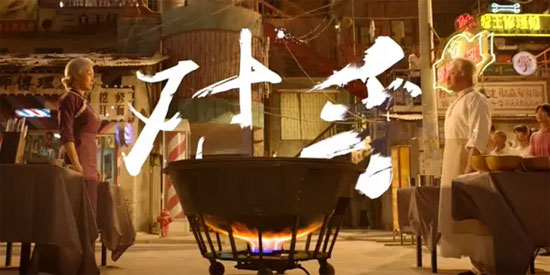
Making a “yuan yang hotpot” with a single flavor might sound simple, but this couple turns it into a spectacle. The visual battle of the broth bases isn’t groundbreaking but never feels tedious. The Super Saiyan-style energy blast defeating the monster is a refreshing touch. Finally, Jerry’s loss due to his reluctance to “make his lover cry” is a design that feels both relatable and heartwarming.
Speaking of which, while “The One” falls short in narrative structure, gimmicks, and sensory immersion, the actors largely deliver solid performances.
Beyond the delightfully quirky “Four Heavenly Kings,” the biggest surprise for me was Cai Guoqing’s portrayal of Boss Cai. This largely stems from his established public image as a wholesome figure—the greater the contrast, the more his transformation into a singing, scheming villain delivers a uniquely charming “reverse cuteness” effect.
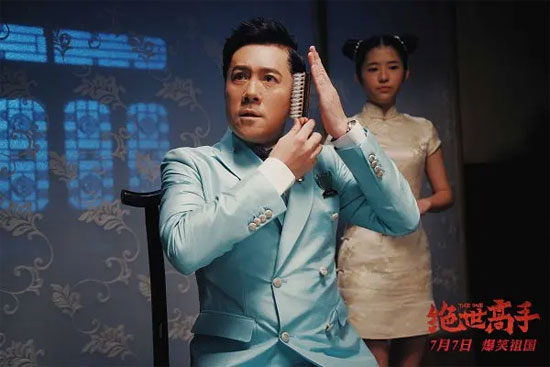
Strangely enough, what stuck with me most throughout the film was actually He Landou’s portrayal of Boss Cai’s young secretary… Though only 18, her comedic flair was already evident…
I intended to discuss both strengths and weaknesses, but by the end, the positives clearly outweighed the negatives. This shows how one’s emotional attachment to a creator can inevitably cloud judgment. Thus, my critical stance can only be raised high and then gently lowered.
“The One” isn’t an outstanding work—it has its flaws—yet it still tells a complete story of redemption. If you’re simply looking for a lighthearted laugh, it’s worth a watch.
Additionally, I hope Lu Zhengyu’s next film truly begins to forge his own “style.” Whether by fate or circumstance, “nonsense comedy” may have once dominated the scene, but today, no one can truly capture its essence anymore (not even Stephen Chow). If Lu Zhengyu truly intends to continue down the path of “creator,” he must take that step, no matter how painful.
Dreams are worth holding onto, just like in the film’s post-credits scene: Xiao Man’s mother didn’t run off with some wild man, but actually went to space and brought back an alien red flower… It’s fantastical, yet beautifully so.
Please specify:Anime Phone Cases » The One 絕世高手 2017 Film Review: Success comes from paying homage, and failure comes from paying homage.